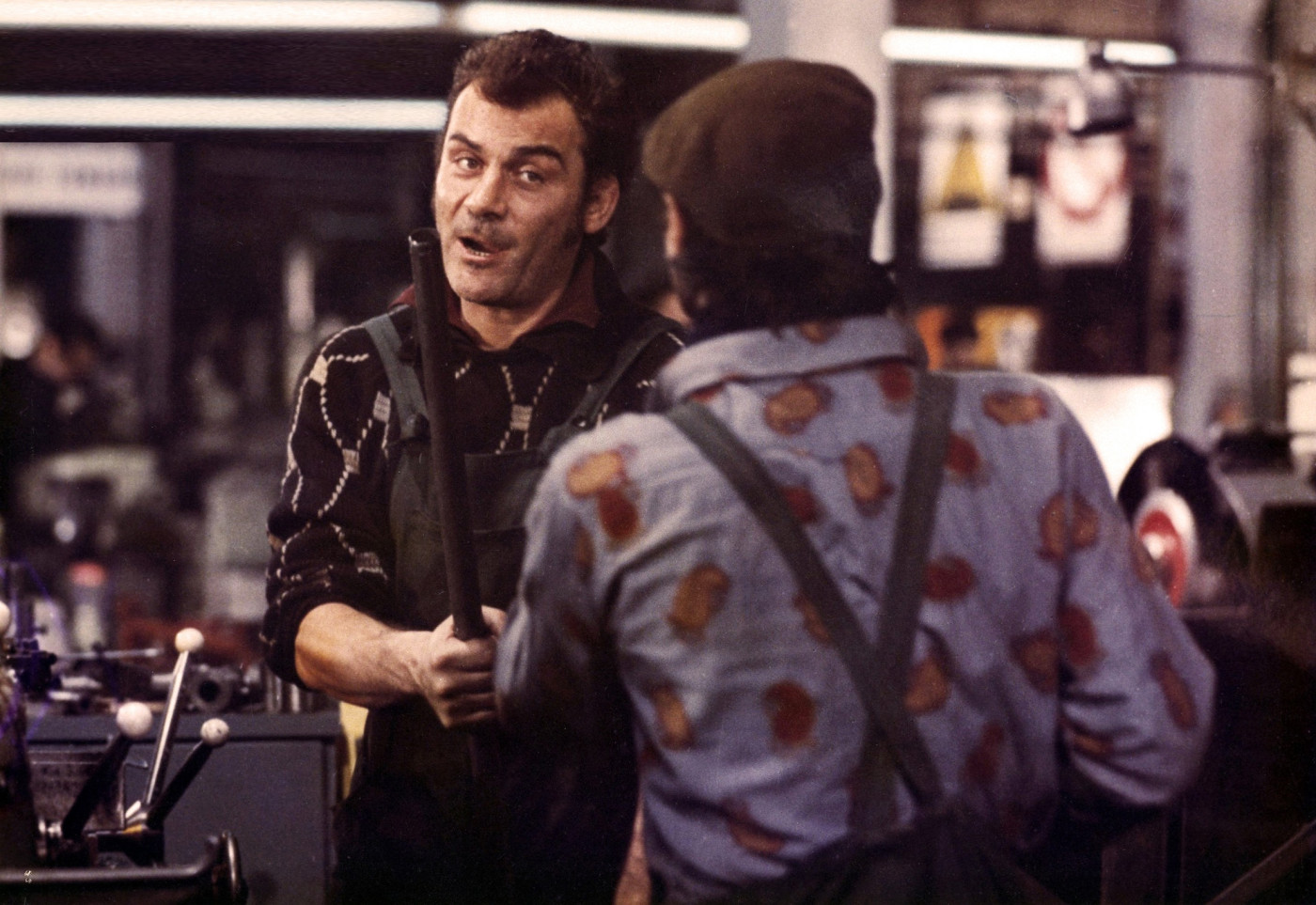
Tribute to Elio Petri 2014 / La classe operaia va in paradiso / Italy 1971
Assembly-line worker Lulù Massa (Gian Maria Volonté) is an individualist who works at a frenetic pace. That is, until an injury transforms his view of the life he has led. With his usual penetration and cynicism, Petri explores the workers’ ability to perceive the monotony of the working process and of their own existence. Grand Prix ex aequo at Cannes 1972.

Lulù Massa (Gian Maria Volonté) is an independent-minded worker who spends shift after shift on an assembly line. He, like everyone else, is paid per unit, but unlike the others he keeps breaking records – to the satisfaction of his superiors and the ill will of his coworkers and the union. The tempo is frenetic and the risk of injury plain enough. When it does happen, the trauma changes Lulù’s take on the world. A strike is inevitable. "I felt it important to shoot a film about how the decision to strike takes shape inside a worker’s mind. It sprang from the idea that monotonous, long-term work on an assembly line turns people into slaves who have no idea what happens to the products they make,” said Petri. The confrontation between Petri’s picture, produced in a country of armchair leftists, and viewers of a festival held in parts of the former Eastern Bloc, seems exceptionally challenging. But Petri’s purpose, somewhat inconvenient even for the domestic Left, is crystal clear, and it would be misguided to overly latch onto the perception of the term "working class” as experienced in such regions. With his usual penetration and cynicism, Petri investigates how capable its members are of perceiving the conditions they work in, and to what degree that realization is blocked by "factory discipline” and the fear of losing their jobs and their very identity. Co-awarded the top prize with Rosi’s The Mattei Affair at the Cannes film festival in 1972.
115 min / Color, 35 mm
Director Elio Petri
/ Screenplay Elio Petri, Ugo Pirro
/ Dir. of Photography Luigi Kuveiller
/ Music Ennio Morricone
/ Editor Ruggero Mastroianni
/ Producer Ugo Tucci
/ Production Euro International Films
/ Cast Gian Maria Volonté, Mariangela Melato, Gino Pernice, Luigi Diberti, Donato Castellaneta
/ Contact Istituto Luce Cinecitta Srl, Movietime Srl
Istituto Luce Cinecitta Srl
, 001 73, Rome
Italy
Movietime Srl
via Nicola Ricciotti 11, 00195, Rome
Italy
Phone: + 39 06 321 1549, +39 06 322 6709
Fax: +39 06 360 009 50
E-mail: [email protected]

Paola Pegoraro
Other

Milena Gregor
Film Institution Rep.
First-hand brews throughout the year.
Be among the first to learn about upcoming events and other news. We only send the newsletter when we have something to say.